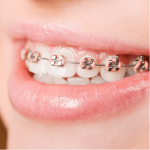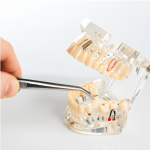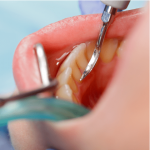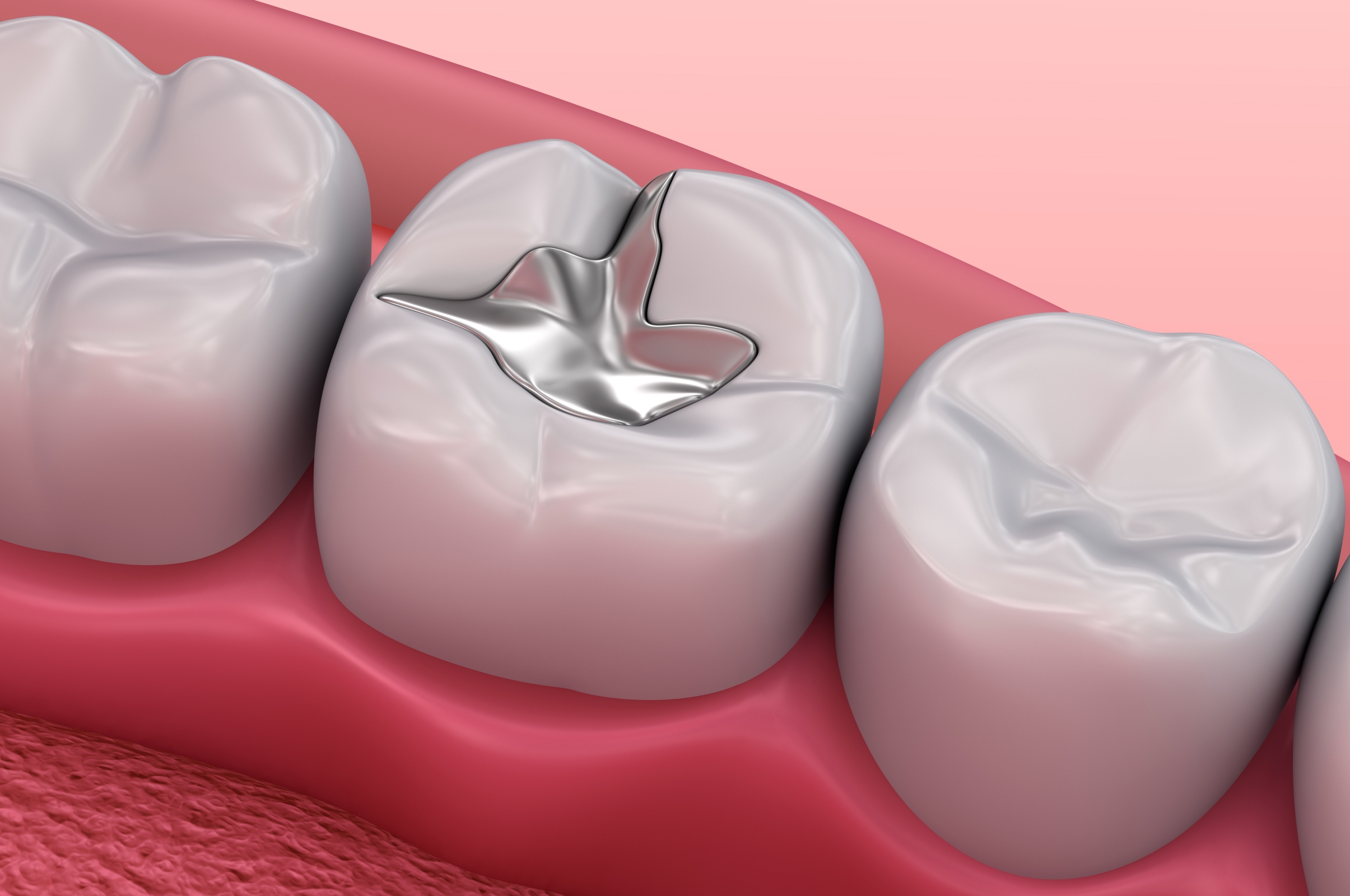
What Dental Fillings Should You Get?
When cavities are cleaned out, dentists have to cover up the now exposed pulp and nerves in order to prevent more pain and decay. They do this with different types of fillings that each serve different purposes.

Composite Resin
Composite Resin fillings or inlays match the colour of your teeth. While a filling can be completed in one dental visit, an inlay may require two visits. These fillings can bond directly to the tooth without much drilling involved because the dentist does not have to actively shape the space to hold the filling securely.
Indirect composite fillings and inlays are heat-cured. This step increases its strength. Composite resin can be used in combination with other materials, such as glass ionomer, to provide the benefits of both materials.
Gold Cast
Gold is a non-corrosive metal, making it a very suitable filling material. Gold fillings are durable enough to withstand chewing forces and they last longer than all other filling materials.
Ceramics
Ceramics are practically tooth-coloured. They are extremely resistant to staining and abrasion, and are especially suitable for fillings on the front teeth.
Glass Ionomer
Glass ionomer matches the colour of the teeth, but not always as well as composite resin. However, glass ionomers release fluoride, so using it in combination with resin can help protect the tooth from further decay.
Furthermore, glass ionomer restorations bond tightly to the tooth. This helps to prevent gaps or leakage around the filling and further decay.
What is the difference between Fillings, Inlays, Onlays and Crowns?
All of the above are terms for dental restorative procedures but there are some slight differences to them.
A subscription is required to display the requested content.
The license for (tagdental.my) is not active.
Inlays and fillings are often used interchangeably but technically, inlays are for bigger cavities than fillings.
Onlays often cover the cusp of a tooth and is fabricated as a single, solid piece.
On the other hand, crowns are needed for much more serious restoration and are often thought to be more of a replacement. It is a cap that is placed over the entire tooth after removing the existing tooth decay.
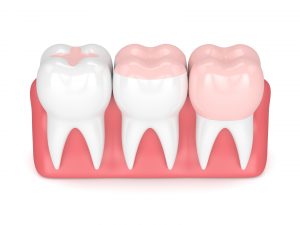
Image: Tooth with Inlay, Onlay & Crown
Implants are used when the entire tooth has to be removed due to extensive damage. An implant is screwed into place with a crown to cover the cap.

If you need more information about fillings that are suited to your needs, come in for a consultation at TAG Dental Clinic and we will be happy to guide you further.

